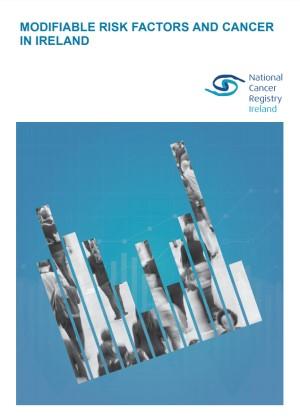Modifiable risk factors and cancer in Ireland
“29% of cancer incidence in Ireland is attributable to 11 modifiable risk factors, including 13% attributable to smoking”: latest report from the National Cancer Registry

- This is the first analysis by the National Cancer Registry on the proportion of cancer cases attributable to modifiable risk factors and thus potentially preventable.
- The report, published by the National Cancer Registry today, shows that in Ireland, about 6,200 newly diagnosed cancer cases in 2016 alone were attributable to the 11 modifiable risk factors examined.
- The report indicates that, just among these factors, 29% of cancer incidence in Ireland was potentially preventable. This relates to 3/10 of all invasive cancers (excluding non-melanoma skin cancer) cases being attributable specifically to the sum of the 11 modifiable risk factors examined.
- Smoking, overweight and obesity, and infections were the top three modifiable risk factors for cancer in Ireland, together accounting for about 21% of all cancers. These risk factors need to continue to be targeted by public health representatives and policymakers.
- At about 2,800 diagnoses in 2016, 13% or about one eighth of cancer cases were attributable to smoking, including passive smoking. By 2035, assuming these risk estimates continue to apply, it is estimated that about 4,700 cases of invasive cancer per year will be attributable to smoking
- Lung cancer had the highest number of cases attributable to modifiable lifestyle risk factors in both males and females, followed by colon cancer in males and breast cancer in females.
- Over a ten-year period ending in 2035, it is estimated that three of those factors alone — smoking, overweight and obesity, and alcohol consumption — will be responsible for about 66,000 cancer cases.
- It is important to note that the figure of 29% is an underestimate of preventable cancer in Ireland. The risk associated with occupation was not accounted for here and should be examined in future research. In the UK, 3.8% of cancer cases were attributable to occupation-related risk. Additionally, everyday exposure to ultra-violet radiation was not included, only sunburn history and sunbed usage.
- It is essential that measures are undertaken and continued, especially at a population level, to help ensure that the possible increases in cancer cases in the future modelled in this analysis do not become a reality. It is recommended that the findings in this report are used for future health-related policy planning.
- It is recommended that this work is repeated in future years to ensure regular monitoring and to assess the impact of policy change and intervention on public health outcomes.
- The economic burden of cancer for the health services, patients and their families, and society at large are significant. This burden will increase in the coming years as novel, more expensive treatments become available and the number of people living with and beyond cancer increases. The NCRI will be compiling a follow-up report estimating the economic burden of cancer in Ireland attributable to modifiable risk factors. It is recommended that this further report also be considered by policymakers.
Share this page